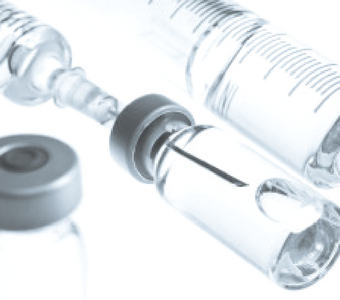Since reaching a high of over $240 in late May, shares of Biogen Idec (BIIB) have pulled back, falling nearly 18% amidst broader volatility in the biotechnology sector, as well as concerns related to Tecfidera’s launch, specifically its growth trajectory and potential for European data protection. Long-term investors shouldn’t let these concerns cloud the outlook for Biogen’s pipeline and future growth prospects.
Biogen’s decline began in earnest in early June, when Cowen raised questions regarding Tecfidera prescriptions, arguing that IMS data may be overstating Tecfidera’s prescriptions by as much as 36%. Cowen argued that IMS records a new subscription whenever any part of a subscription is changed, thereby essentially double-counting these prescriptions. We believe that Cowen’s has it wrong. First, the firm left intact both its outperform rating and $278 price target. There is little reason for Cowen to leave intact both its opinion (outperform) and judgment of future value (its $278 price target) if this issue was truly meaningful. Secondly, investors can look back to IMS data for other multiple sclerosis launches to see how IMS data performs.
As the chart above shows, IMS data hews fairly close to actual sales results for Novartis’ (NVS) Gilenya, and even if there are occasional discrepancies, longer-term IMS data (since Gilenya’s September 2010 launch) appears to be fairly accurate in terms of tracking sales. We believe that long-term data for Tecfidera will also be a fairly close match to actual sale results, assuming that IMS practices remain consistent.
In addition to concerns related to Tecfidera’s U.S. performance, there have also been new concerns related to the drug’s pending European launch. In early June, Biogen confirmed plans to delay the launch of Tecfidera in Europe, citing a desire to secure stronger data exclusivity. Tecfidera does have patent protection that can be extended through 2028, but it is not a compound patent, something that could lead to generic challengers arriving more rapidly than analysts and investors expect. In addition, investors have become somewhat unnerved by a lack of clarity related to Tecfidera’s eligibility to receive New Active Substance (NAS) status. Although Biogen has stated that it believes Tecfidera is “entitled to regulatory data protection in the EU,” the company is delaying Tecfidera’s launch to further clarify the situation. Securing further data protection would strengthen Tecfidera’s European IP defense and allow Biogen to hold off generic challengers more easily than it would otherwise be able to.
Additionally, Genzyme’s Aubagio, which has not received NAS status, could see generic versions launched in as little as three years, which some fear may put pressure on Tecfidera sales. In addition, the 2015 expiration of Teva’s (TEVA) Copaxone patents is seen by some industry observers as a further obstacle for Tecfidera’s long-term European potential. Given that Tecfidera’s European patent portfolio begins to expire as early as 2019, investor concern is understandable. But we believe these concerns should not overshadow what’s been an unprecedented domestic launch, and that Biogen will ultimately launch Tecfidera with robust European IP defenses. Regulatory protection has no bearing on the strength of Biogen’s European patent portfolio, and even with regulatory data protection, exclusivity is assured through 2023, only 4 years more than the exclusivity assured by Biogen’s patent portfolio. By then, it’s likely that Tecfidera will no longer be the main driver of Biogen’s stock price. With 15 clinical programs in its pipeline (and a reputation for conservatism in picking which programs to invest in), we suspect that in 6 years, focus will shift to these programs, which include multiple next-generation MS assets, including daclizumab and anti-LINGO.
Here in the United States, physicians are noting that large swaths of their MS patients are asking about Tecfidera, and that in the first weeks of Tecfidera’s launch, Biogen was overwhelmed by the domestic demand for Tecfidera. The company is also working to ease reimbursement issues as many insurers complete their reviews of Tecfidera. And importantly, current prescription trends suggest that Tecfidera sales are set to top consensus estimates for 2013, and that sales are on track to exceed $1 billion in 2014. With shares down 18% from their 2013 highs, we believe that shares of Biogen Idec are worth consideration given Tecfidera’s robust domestic launch, and what we believe will ultimately be a favorable resolution regarding the drug’s European launch.
Here’s what we said about BIIB last October shortly after launching PropThink.com.
In connection with BIIB, PropThink has taken a long position.




